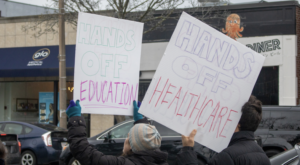A Boston College–funded study by independent research firm Econsult Solutions concluded that the University’s annual economic impact on the Commonwealth of Massachusetts is $3.3 billion, according to a University release.
“Through job creation, capital investments, relationships with local vendors and companies, and the faculty, students, and staff who volunteer in the community, Boston College has a significant economic impact in our host cities of Boston and Newton,” Associate Vice President for University Communications Jack Dunn wrote in a statement to The Heights.
According to Dunn, colleges and universities generally conduct economic impact studies every 10 to 15 years. BC last commissioned a study in 2008.
“This analysis reflects the economic benefits that flow from the University and support the region and the state economy as a whole,” Dunn said.
The study divided BC’s economic impact into four categories: University operations, capital investments, ancillary spending by students and visitors, and the earning power of BC alumni who reside in Massachusetts.
According to the release, the University’s annual operations creates 8,100 jobs and $1.57 billion in economic output for the state. Further, BC’s capital investments bring about $350 million in economic output each year, supporting 1,550 jobs in Massachusetts.
Student spending as well as visitor spending totalled $112 million in economic activity in the state annually, the release said.
BC attracts talented individuals from around the country and world, many of whom stay in Massachusetts after graduation, according to Dunn.
“Through their work, they provide a $1.28 billion annual wage premium to the state, in addition to their many professional contributions in the areas of business, health, education, entrepreneurship and public service,” he wrote.
Local communities, including Boston and Newton, benefit from $16.7 million in BC’s social impact, including “community service, service-learning activities, support for local schools, and infrastructure contributions,” the release said.
According to the release, service and fieldwork programs such as PULSE and 4Boston support local economies—each year, 8,000 volunteers contribute to 768,000 service hours that impact more than 52,000 people in local communities.
In BC’s release, University President Rev. William P. Leahy, S.J., said the new study demonstrates the wide-ranging effects and benefits BC has on the Massachusetts economy.
“Boston College generates revenue, investment, and jobs in Massachusetts, and has broad social impact through its educational offerings, community partnerships, and volunteer service, particularly within its host cities of Boston and Newton,” Leahy said.
Featured Image by Nicole Vagra / Heights Editor




